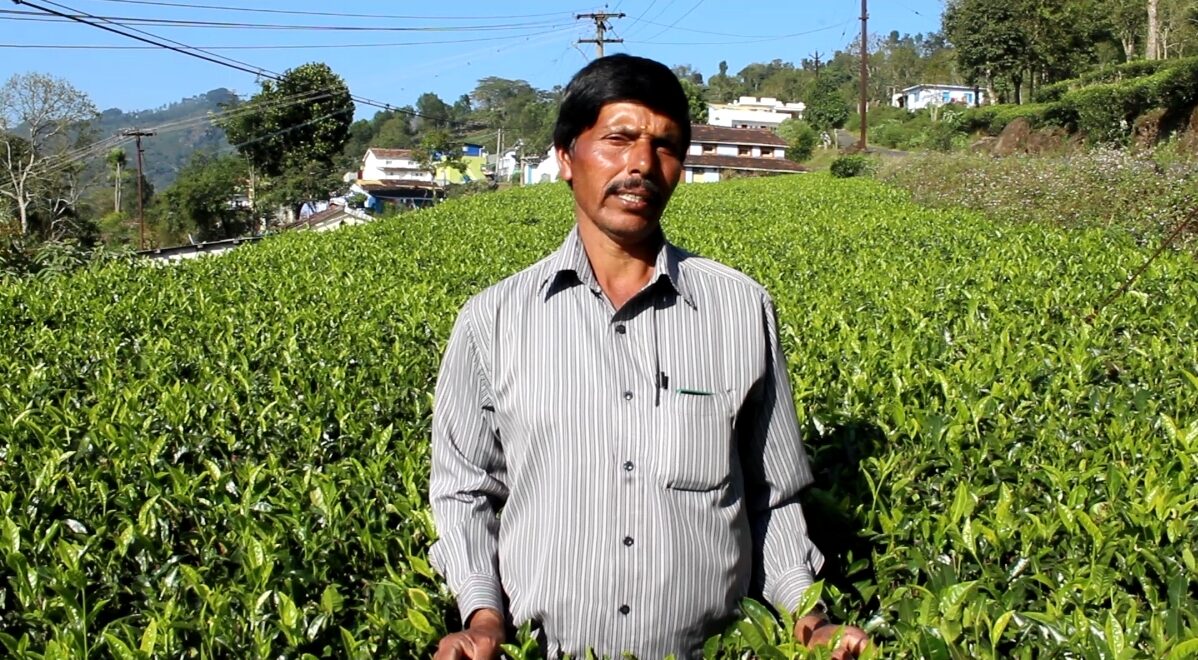For small tea growers, like Vijaya in India, better prices have improved livelihoods.
In a post-COVID world, one of the key challenges for small tea growers is to meet the burgeoning consumer and market demand for sustainably grown and responsibly sourced tea. Added to this, modern global regulations regarding food supply chains have made it necessary for many brands, retailers and farmers to embrace traceability standards.
Practicing traceability compliance to meet regulatory requirements lends credibility, while providing assurances of quality and safety to consumers who buy products. Furthermore, many governments view traceability programmes as a form of risk mitigation.
However, small farmers often lack both the knowledge and the resources to implement traceability programmes that ensure regulatory compliance. To aid these farmers, a real effort must be made to provide resources and tools, along with knowledge sharing and training on digital traceability technologies.
For this purpose, Solidaridad developed SoliTrace, a technology-driven traceability solution that captures the journey of a commodity at every transaction point. Products employing SoliTrace technology come with a QR code. In this case, a quick scan provides useful information about the tea — the history of its production and the story of the small grower behind it. The code shows where it has been grown, the sustainable practices employed, and the level of sustainability achieved in its production – thereby, building an instant connection between the buyer and the producer.
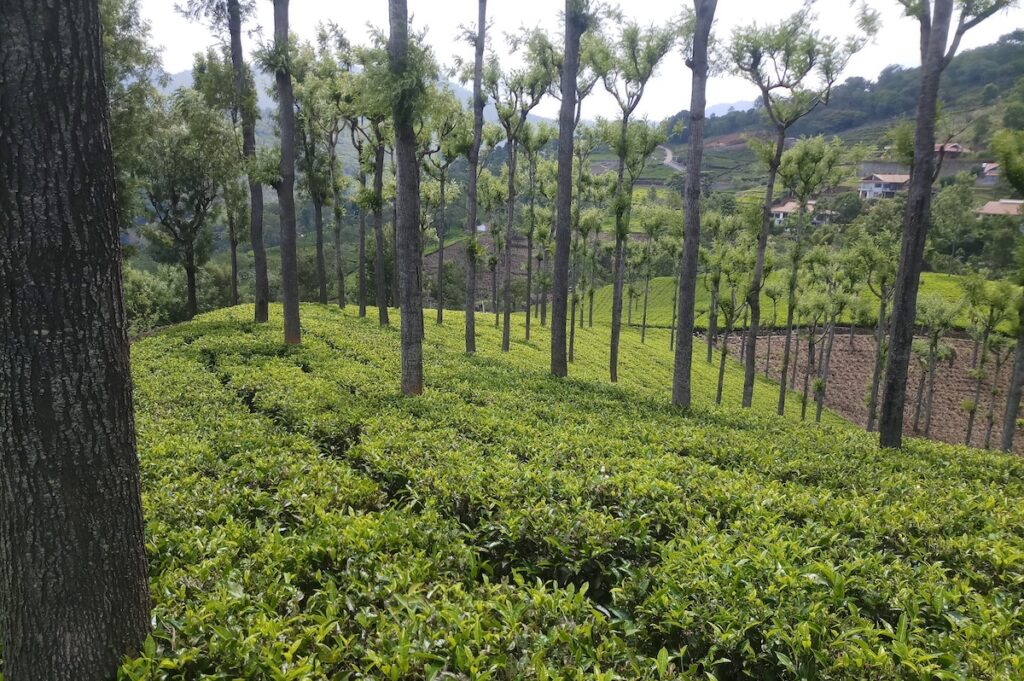
Darmona: a case study in tea and traceability
In recent years, Darmona Tea, one of the leading brands in South India’s bought-leaf sector, has been selling high-quality packaged tea. The company was looking for a way to stand out in the market dominated by multinational giants.
“We wanted a competitive edge going into the market. We were also looking for a way to show how authentic our product is, tell our customers where it is coming from,” says Dinesh Raju, Managing Partner, Darmona Tea.
Darmona implemented a farm-to-cup traceability system in their value chain to provide their customers a seal of assurance — that the package of tea they are buying scores high on safety and sustainability.
Through SoliTrace, Darmona has been able to build higher brand equity and earn consumer trust, while also enjoying a 15 percent jump in the sales of its packet tea. From the perspective of the small tea farmer supplying tea leaves to Darmona, SoliTrace brings them to the forefront of the tea story, helping them reclaim the sustainability narrative, and making them an equal participant in the transparent and traceable value chain that enables easier access to markets.
Darmona sources green leaf for its packaged teas, both from its own estate and from small tea growers in the Nilgiris. The factory and tea estate owned by Darmona have implemented traceability through Solidaridad’s Trinitea app, and all the application interfaces for different actors in the value chain are part of the SoliTrace architecture.
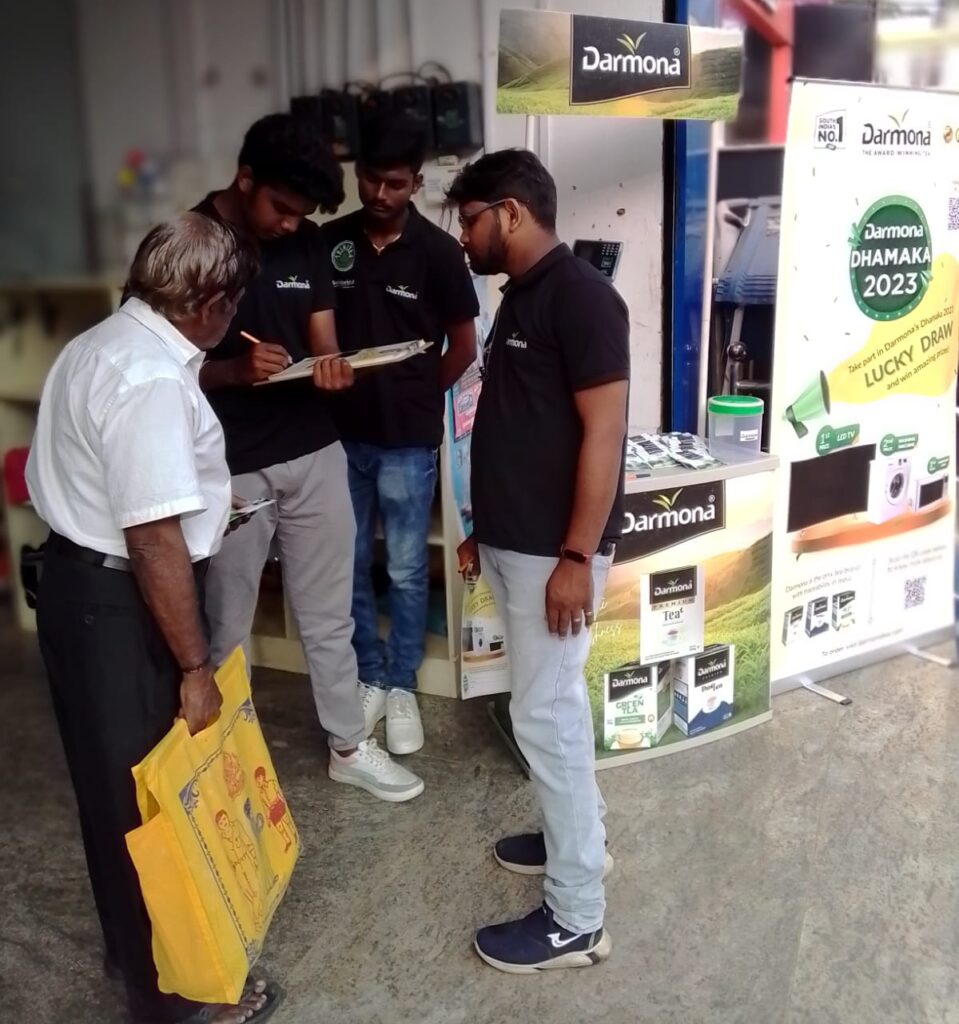
Additionally, Solidaridad, in partnership with the Indian Tea Association (ITA), has been working with 10,000 small tea growers in the Gudalur and Coonoor municipalities of the Nilgiris district since 2019 to support them in the adoption of sustainable and climate-smart farm management practices. Many of these farmers also supply green leaf tea to Darmona.
For traceability at both the farm and the factory levels, these smallholders use the Trinitea app (a version created for farmers) to self-assess their produce against sustainability parameters like better soil, environmental management, water and harvesting practices. The app traces the journey of the green leaf — from the farms to the collection centre to the agent and then on to the factory (versions have been developed for both agents and factory personnel).
To ensure sustainability at every point of the tea value chain, the next step involves the incorporation of traceability at the consumer level. This is done through a QR code on the Darmona tea package. Once the green leaves have been completely processed in the factory, a code is generated along with the invoice to be part of the label on the packet. The consumer can scan the QR code to find details such as the date of procurement and the date of packaging, region of origin, topography, the farmer–producers behind the product, and the sustainable farming practices followed when producing the tea.
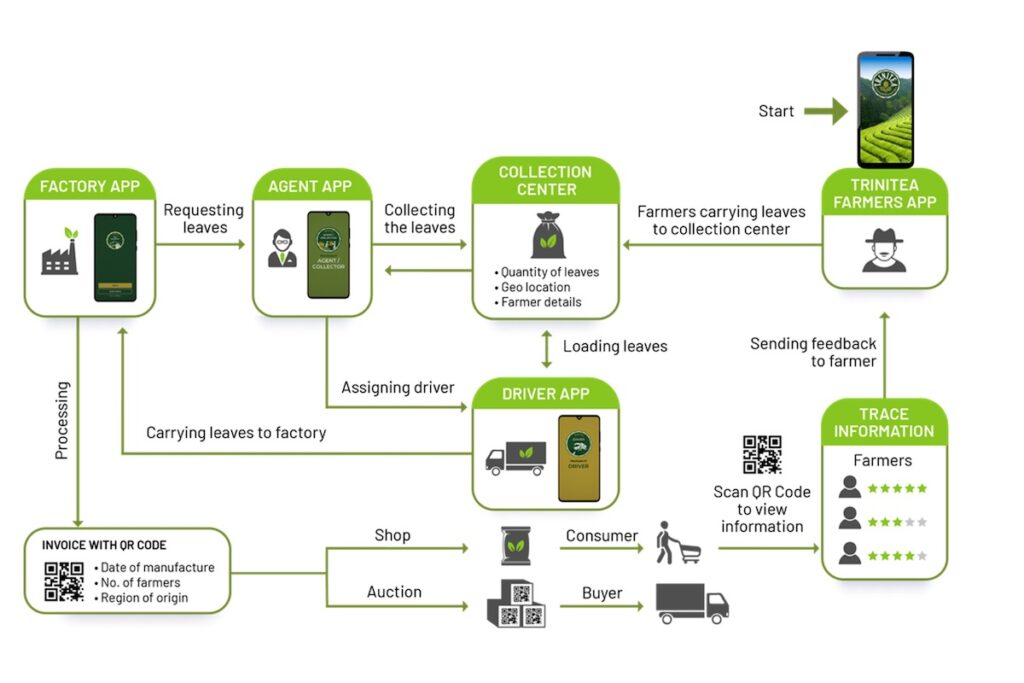
SoliTrace brings gains to Darmona
At Darmona, the holistic introduction of SoliTrace technology has yielded significant outcomes at multiple levels.
Consumers Engage with Darmona
At the consumer level, Darmona has been able to bring end-to-end traceability to its packaged tea value chain — one of the first in the Indian tea industry to do so. Since the launch of the QR code on Darmona tea packages in 2021, the brand has witnessed a 15 percent increase in sales. With assurances on the safety and quality of the tea, the company has observed repeat purchases (with 3 out of every 10 customers a repeat buyer).
The consumer engagement with the QR code has been positive as well, with most scans being recorded in Chennai and Coimbatore districts in Tamil Nadu, and Bengaluru in Karnataka. “Customers who have purchased the packets have mostly appreciated the initiative, as they feel that the QR codes are informative and add to the value of the good-quality tea,” says Dinesh.
Ramesh, a regular buyer of Darmona products, concurs. “Scanning the QR code on the tea packet allows me to know more about the small tea growers behind the product. It also helps me be aware of the safe procurement practices employed and the training these farmers have undergone under Solidaridad programmes.”
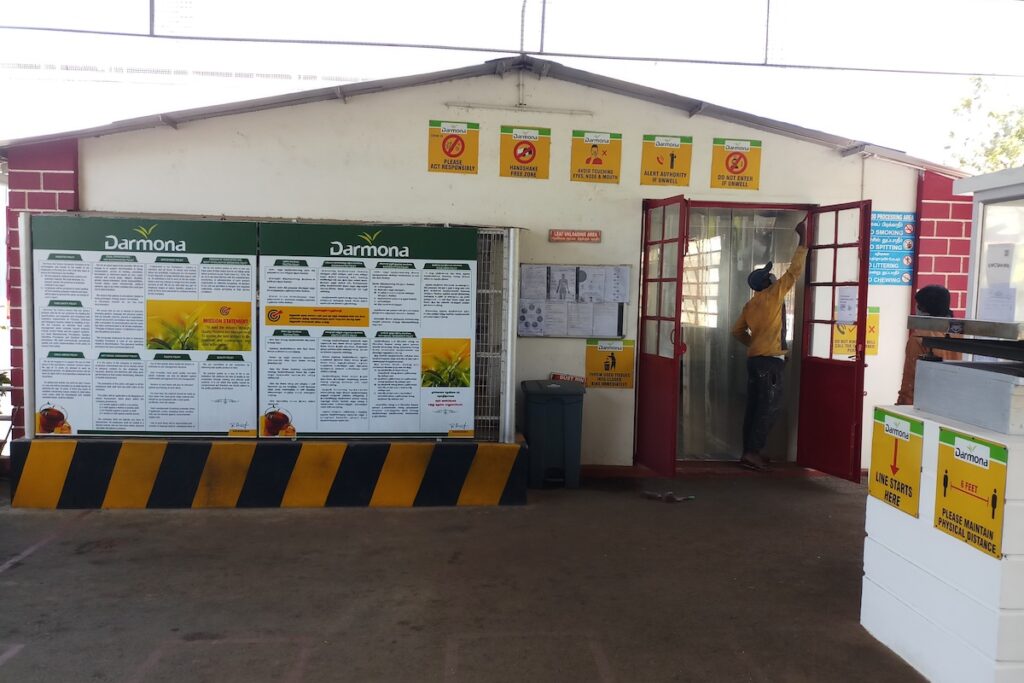
Efficiency and Transparency at Darmona
At the factory level, the transparent and traceable supply chain has brought efficiency in Darmona’s sourcing pipeline. Through the digital tool developed by Solidaridad, the factory receives prior information on green-leaf procurement for a particular day. This makes it easier to plan transportation schedules and other logistics.
Additionally, suppliers have been trained under the programme to identify good-quality tea leaves with minimum chemical residues. Once the tea is processed, the unique ID (the Tea ID) given to the products helps to identify and trace each grower, which aids in the creation of a traceable supply chain.
I wanted a closer connection with my suppliers and to know where the raw material (green leaf) is coming from. SoliTrace has helped me in doing that.
Dinesh Raju, Managing Partner, Darmona Tea
Darmona Quality Improves
The quality of green leaves supplied to the factory from the small growers has shown a marked improvement. The small growers are Trinitea-assessed, which means they follow sustainable farming and efficient farm management practices – timely pruning, plucking leaves the right way, minimum use of chemical fertilizers and pesticides, and timely pest management. This has led to an improvement in the quality of leaves, reduction in input costs, and compliance with food safety and environmental guidelines. For instance, after Solidaridad’s interventions, the percentage of good-quality leaves supplied rose to 80 percent, from 60 percent earlier. “I am getting requests from more suppliers asking if they can supply green leaf to us,” says Dinesh.
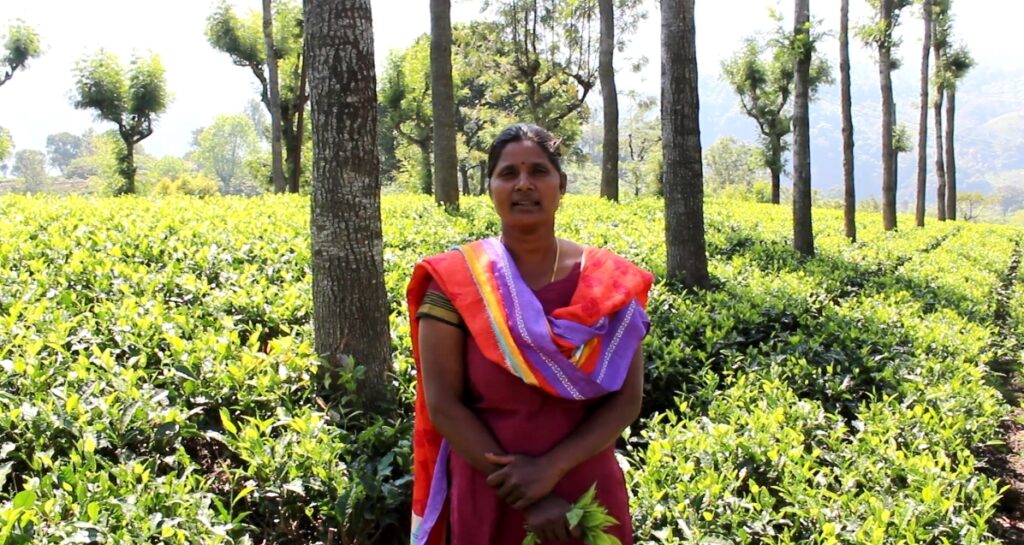
Prices Rise for Small Growers
At the farm level, small growers are fetching a better price for their garden-fresh tea which adheres to sustainability and traceability standards. Against the average market price of 15–16 Indian rupees per kilogram of green leaf, farmers who supply Darmona are earning 30 Indian rupees per kilogram, an increase of almost 100 percent.
“After attending Solidaridad’s training programmes, I have changed my pruning cycle and also increased the pruning heights, which has led to quicker recovery periods. The fresh leaf harvested from the pruned fields is my best product which is supplied to the Darmona tea factory, and I am getting a better price for it. This has improved my standard of living and I am now able to send my children to a good school,” says 37-year-old Vijaya who owns a 5-acre farm in Aggal village in the Kotagiri taluk of the Nilgiris district.
As a result of the adoption of sustainable farm management practices under the Trinitea programme, farmers have seen:
- An average 10 percent increase in crop yield compared to the pre-Trinitea period.
- 15 percent savings in input cost due to reduced use of fertilizers and pesticides.
Small farmers, who used to face the difficult consequences of fluctuating low prices, are now incentivized to grow sustainably. “I used to pluck my tea leaves once every 30 days. After attending the Trinitea programme, I am now plucking once in 12 days. As a result, my yield has increased, and the quality of the green leaf has gone up. Consequently, I am getting a better price in the market,” says Durai, a 52-year tea grower with two acres of land in Kesalada village in the Kotaguri taluk, who supplies green leaf to Darmona.
SoliTrace and farm-to-cup traceability
Beyond the immediate results, extensive on-farm training by agri-experts and the access to localized and timely information have helped the small growers move from traditional farm practices to climate-resilient farming. This form of agriculture involves the efficient utilization of water, reduced use of chemicals, and is regenerative in nature. This, in turn, has led to better soil health and improved biodiversity in the areas.
With farm-to-cup traceability, Darmona, through SoliTrace, has brought about a disruption in the consumer market. Darmona is now planning to export the packaged tea with QR codes to international markets. Retail markets in Dubai are already showing an interest in the product.
The Solidaridad supported the SoliTrace approach lends credibility and recognition to the tea produced by small growers, and connects them directly to markets and the consumers themselves.
“The Darmona case study exemplifies the synergy achieved by integrating two distinct programmes. The outcomes of our Practice for Change-supported Trinitea initiative (2018-2022) have paved the way for us to extend the SoliTrace innovation directly to consumers via the ongoing Reclaim Sustainability (RS!) intervention. This case study offers a comprehensive illustration of our farm-to-cup model,” says Ramanand Tiwari, Assistant General Manager, Solidaridad.
It provides a successful business case for making sustainability and traceability a norm. Such an approach has the potential to benefit businesses, small growers and the environment in equal measure.

